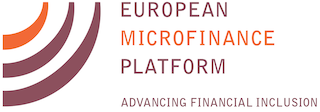In a deal announced earlier this month and finalized last week the International Finance Corporation (IFC), a member of the World Bank group, has teamed up with Citigroup to loan USD 22 million to the microlending efforts of the Bangladeshi-based organization BRAC, formerly known as the Bangladeshi Rural Action Committee. The trenche is part of a larger financing plan of USD 55 million, of which USD 42 million will be provided by Citi. Citi Bangladesh and BRAC have worked together in the past several years to provide innovative microcredit solutions for Bangladesh, most recently in the first-ever implementation of a backstop facility for a microbank, which allows BRAC to lean on Citi in unfavorable market conditions rather than default on creditors.
Search Results for: BRAC
PRESS RELEASE: Citi Soon to Announce Final Tranches of Deal With IFC, Microfinance Institution BRAC Worth $55m in Bangladesh Taka
Source: Citigroup.
NEWS WIRE: Bangladesh: Citi, IFC to Loan Microfinance Institution BRAC Local Currency Equivalent of $22m
Source: The New Nation (Bangladesh).
NEWS WIRE: Bangladesh: US Government Guarantees $20m Microfinance Loan from Citibank to BRAC
Source: AHN.
WHO’S WHO IN MICROFINANCE: BRAC
BRAC, formerly Banglandesh Rural Advancement Committee, was initiated 1972 by Fazle Hasan Abed as an almost entirely donor-funded, small-scale relief and rehabilitation project to aid post-Liberation War Bangladesh. Today, it is one of the largest private development organizations employing 97,192 people (61 percent of whom are women). It actively carries out its twin objectives of poverty alleviation and empowerment of the poor in all 64 districts of Bangladesh, as well as in other countries including Afghanistan and Sri Lanka.
MICROCAPITAL STORY: Under Public Pressure, ‘the Bangladeshi Big 3’ – ASA, BRAC, Grameen Bank – Suspend Loan Repayment Collections After Cyclone
Three of the largest microfinance institutions (MFIs) in Bangladesh have suspended repayments of loan instalments for the surviving victims of Cyclone Sidr until 2008. Both the army chief, General Moeen U. Ahmed, and the media in the country have been lobbying for this suspension to be made by all MFIs working in the cyclone-struck region.
NEWS WIRE: Bangladesh: Standard Chartered to Loan $55m to Microfinance Institution BRAC
Source: Financial Times.
MICROCAPITAL STORY: BRAC, Bangladesh’s Largest Microfinance Institution, Launches USD 90 Million Bond to Provide Lending to the Agricultural Sector
The Bangladesh Rural Advancement Committee, known as BRAC, has announced plans to issue a Tk 700 crore (USD 90 million) zero coupon tax free bond, with which it will loan money to small and tenant farmers in the Bangladeshi countryside. BRAC plan to issue the bond, known as the ‘BRAC Bond for Agricultural Funding,’ in either December 2007 or January 2008, with Citibank, N.A. Bangladesh acting as lead arranger.
NEWS WIRE: BRAC & Citi Bangladesh Launch Remittance Partnership
Source: Citigroup Inc.
Article available here.
BRAC, the world’s largest national NGO with over five million borrowers and 100,000 employees, has signed a remittance distribution agreement with Citi Bangladesh. This is one of the first such arrangements with microfinance institutions in the world.
BRAC’s USD 180mn Microfinance Securitization wins Recognition from International Financing Review Asia and CFO magazine
The International Financial Review (IFR) Asia, has announced BRAC’s USD180mn securitization as the winner of the Asian award for the securitization deal of the year. IFR Asia is a Thompson publishing magazine which concentrates on the Asian Capital Markets.
This deal has also found recognition from the CFO magazine, winning one of the Seventh Annual Deals of the Year Awards. In its cover story on how global liquidity is driving financial innovation in Asia, it said about the BRAC deal “In a year when the Nobel Foundation recognized the role of micro-finance in promoting peace in impoverished nations, the securitization of US$180m in BRAC (Bangladesh Rural Advancement Committee) loans in Bangladesh becomes a more meaningful endeavor for the non-profit organization. Completed in September, the deal brought innovation to funding for the poor, introducing a commercial transaction that may be replicated in countries where micro-credit exists.”
International Finance Corporation buys USD 1 million of Equity in BRAC Afghanistan
News coming to us courtesy the MCM newsletter, the International Finance Corporation (IFC) has bought a 16% stake in BRAC Afghanistan in an equity deal worth USD 1 million. The IFC is also considering a technical assistance program to the organization.
ShoreCap International and Triodos-Doen Invest USD2 Million in Microfinance Institution BRAC Afghanistan
The CGAP/MIX Microfinance Capital Markets Update (MCM) reported that the Afghani operation of Bangladesh Rural Advancement Committee (BRAC), a microfinance institution (MFI), has recently received an influx of capital through the sale of USD 2 million in equity. ShoreCap International and the Triodos-Doen each invested USD 1 million in the institution.
Bangladesh’s BRAC to Extend Operations into Pakistan
Bangladesh Rural Advancement Committee (BRAC), one of the large Bangladeshi microfinance institutions (MFIs), recently revealed that it will soon pursue operations in Pakistan. The announcement came after the Prime Minister of Pakistan, Shaukat Aziz, said that the government would like to encourage the expansion of microfinance services to 10% of the country’s population. The MFI recently applied for a license in the country and is expecting to hear back soon. Last year, Pakistan’s Finance Advisor, Dr. Salman Shah, visited BRAC operations in Bangladesh with a party of other high ranking Pakistani officials to learn more about the field.
Continue reading “Bangladesh’s BRAC to Extend Operations into Pakistan”
MICROFINANCE EVENT: FinovateEurope; February 27-28, 2024; London, UK
 FinovateEurope is an annual conference promoting advances in financial technology (fintech) across Europe. The schedule includes sessions such as (1) Women in Fintech: How Can We All Make Sure We Are Moving the Needle?;
FinovateEurope is an annual conference promoting advances in financial technology (fintech) across Europe. The schedule includes sessions such as (1) Women in Fintech: How Can We All Make Sure We Are Moving the Needle?;
SPECIAL REPORT: Inclusivity in Capital Markets Demands Sustainability Reporting
 Sustainability reporting entails assessing, disclosing and managing an organization’s environmental, social and governance (ESG) impacts. This practice communicates to investors, customers, employees and regulators that the organization is committed to sustainability. The disclosure element, in particular, conveys values, strategies, risks, opportunities, accountability and transparency.
Sustainability reporting entails assessing, disclosing and managing an organization’s environmental, social and governance (ESG) impacts. This practice communicates to investors, customers, employees and regulators that the organization is committed to sustainability. The disclosure element, in particular, conveys values, strategies, risks, opportunities, accountability and transparency.
The significance of sustainability reporting within capital markets is increasing steadily, as more investors
MICROFINANCE EVENT: AFSIC: Investing in Africa; October 9-10, 2023; London, UK
 The tenth edition of the Africa Financial Services Investment Conference (AFSIC) will promote investing in the continent with presentations on trends in environmental protection and sectors such as agriculture and financial technology (fintech). In addition to country-specific investment and networking meetings, the agenda includes sessions titled: (1) Banking in Africa – for
The tenth edition of the Africa Financial Services Investment Conference (AFSIC) will promote investing in the continent with presentations on trends in environmental protection and sectors such as agriculture and financial technology (fintech). In addition to country-specific investment and networking meetings, the agenda includes sessions titled: (1) Banking in Africa – for
SPECIAL REPORT: Saluting MFI Staff, Promoting Flexible Products, “Keeping the Client at the Heart” as European Microfinance Week Closes
 A panel of microfinance luminaries shared their moments of pride and disappointment at the closing plenary of this year’s European Microfinance Week. Yannick Milev of the Cambodian microfinance institution Chamroeun expressed his admiration for the staff members of Chamroeun, who continued to work through the COVID-19 pandemic at significant risk to their and their families’ health because “stopping operations completely would have had a terrible effect on us and on our clients.” Mr Milev added that Chamroeun issued many loans during the early days of the pandemic to help clients diversify in response to the economic effects of COVID-19.
A panel of microfinance luminaries shared their moments of pride and disappointment at the closing plenary of this year’s European Microfinance Week. Yannick Milev of the Cambodian microfinance institution Chamroeun expressed his admiration for the staff members of Chamroeun, who continued to work through the COVID-19 pandemic at significant risk to their and their families’ health because “stopping operations completely would have had a terrible effect on us and on our clients.” Mr Milev added that Chamroeun issued many loans during the early days of the pandemic to help clients diversify in response to the economic effects of COVID-19.
Marc Labie of Belgium’s University of Mons described the pandemic as “a chance for the industry to
MICROFINANCE PAPER WRAP-UP: “Strategies to Optimise MSME-centred Supply Chain Finance Solutions: A Study of Ghana, Ethiopia and Nigeria;” by Adebiyi Fajemisin, Anifat Ibrahim and Raliat Sunmonu; Published by Accion
 This report describes how several supply chain finance (SCF) solutions were deployed with the intent of benefiting micro-, small and medium-sized enterprises (MSMEs) in Ethiopia, Ghana and Nigeria. The authors deem these countries particularly “promising markets for MSME-led digital financial inclusion,” and they argue that SCF can provide
This report describes how several supply chain finance (SCF) solutions were deployed with the intent of benefiting micro-, small and medium-sized enterprises (MSMEs) in Ethiopia, Ghana and Nigeria. The authors deem these countries particularly “promising markets for MSME-led digital financial inclusion,” and they argue that SCF can provide
